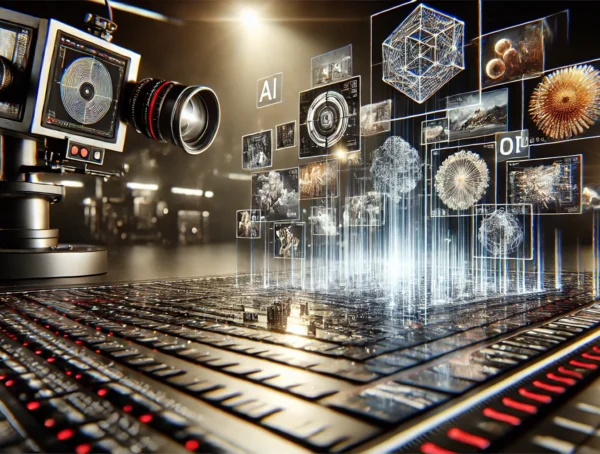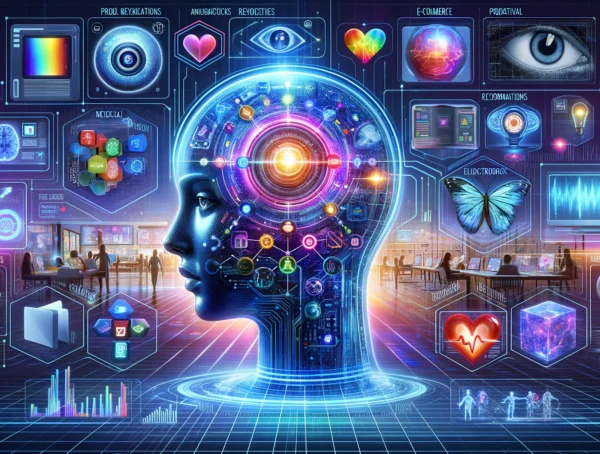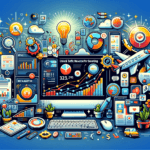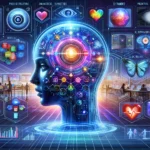A beginner’s guide to critical concepts in artificial intelligence, including applications, leading companies, and considerations around ethics and safety.
Diving into the World of Artificial Intelligence
Artificial intelligence (AI) represents one of our most significant technological breakthroughs. As a beginner, where do you start exploring the possibilities of AI? This guide provides the perfect introduction to artificial intelligence.
We’ll cover everything from crucial terminology to real-world impact. You’ll learn about AI, its history, applications, leading innovators, and considerations around ethics and safety. Let’s dive into the exciting world of AI.
Defining Artificial Intelligence
At its core, AI involves training computers to mimic human intelligence for problem-solving. This includes capabilities like learning, reasoning, perception, prediction, creativity, and more. AI encompasses an array of techniques like machine learning, deep learning, and neural networks.
AI already contributes behind the scenes to many familiar technologies. Digital assistants, content recommendation systems, autonomous vehicles, and chatbots integrate artificial intelligence.
The History and Progress of AI
The origins of AI research date back to the 1950s. For decades progress remained slow due to limited computing power. The increased availability of data and GPUs in the 2000s enabled significant advances in machine learning.
Profound learning breakthroughs accelerated AI capabilities even further. Today, tech giants like Google, Amazon, and Microsoft invest billions into AI research and applications. Government initiatives are also fueling AI innovation in countries like China.
Current and Future Applications of AI
AI broadly applies to healthcare, business, finance, transportation, security, and more. Here are some of the most promising current and potential future applications:
- Self-driving cars powered by computer vision and sensors for navigation.
- Chatbots are handling customer service queries or other automated tasks.
- AI-generated art, music, literature, and other forms of creative content.
- Optimized recommendations for media, shopping, dating, and more.
- Improved medical diagnosis and drug discovery with AI modeling.
- Predictive analytics for optimizing supply chains, logistics, and operations.
- Personalized education and human resources are based on individual strengths.
- Fraud detection and enhanced cybersecurity through pattern recognition.
Leading Innovators in AI Technology
Many prominent technology companies are at the forefront of AI research and development:
- Google continually improves AI across products like Search, Maps, and Assistant.
- Amazon uses AI for recommendations, Alexa, fulfillment, and AWS machine learning services.
- Microsoft’s AI pursuits include Bing search, Cortana assistant, and Azure tools.
- Facebook leverages AI for facial recognition, translations, news feed ranking, and more.
- IBM Watson provides an AI platform for capabilities like chatbots and visual recognition.
- OpenAI, founded by Elon Musk, researches safe AI aligned with human values.
In addition, many startups are pushing AI forward across healthcare, self-driving cars, robotics, and more.
Key Considerations Around Ethics and Safety
As with any powerful technology, AI does carry risks if not carefully implemented. Bias can be inadvertently introduced via flawed data or algorithms. The societal impact also raises ethical questions.
Key considerations include:
- Preventing unfair bias and discrimination in AI systems.
- Maintaining transparency and accountability around AI decision-making.
- Supporting job retraining and new opportunity creation tied to automation.
- Developing safeguards against threats like hackers or autonomous weapons.
- Creating AI that acts ethically, aligns with human values, and benefits society.
Researchers are exploring methods like artificial general intelligence to make AI more trustworthy and safer. Ongoing dialogues between technology leaders, government regulators, and the public will shape the development of artificial intelligence.
The Future Looks Bright with AI
In just a few decades, AI has gone from research labs to powering systems we interact with daily. But in many ways, we are still early in replicating and enhancing human intelligence. As researchers overcome limitations and computing evolves, the possibilities for AI are fascinating.
AI is poised to make our lives easier, safer, healthier, and more efficient. We can look forward to a future powered by artificial intelligence designed to augment human capabilities for the betterment of society. This beginner’s guide provides the foundation to continue exploring the thriving world of AI.
You might also like
More from Blog
Artificial Intelligence: Introducing Its Basic in a Nutshell
What is artificial intelligence?A primer on AI, its definition, and its significance.Artificial intelligence (AI) is a branch of computer science …
Skyrocket Affiliate Outreach With AI – Scale Your Biz Now
As the digital landscape evolves, businesses must adapt to remain competitive and foster growth. One aspect that is seeing significant …
AI Discovery Journey: Exploring The World of Artificial Intelligence
Introduction to Generative AIArtificial Intelligence has rapidly transformed from science fiction to a central part of our technological reality. Among …
AI Image Generation: The Ultimate Guide to Creating Stunning AI Art [2024]
AI image generation has revolutionized how we create visual content. In this comprehensive guide, we'll explore Envato's AI ImageGen tool, …
Discover GPT-40 Vision: The Future of AI Innovation
Artificial intelligence is evolving rapidly. OpenAI's latest innovation, GPT-40 Vision, aims to revolutionize our interaction with technology. This AI model …
WebCrawlerGPT: Overview of Key Capabilities for WebCrawling.
WebCrawlerGPT is an advanced AI model that helps users build web crawlers in Python. It offers deep insights into web …



















